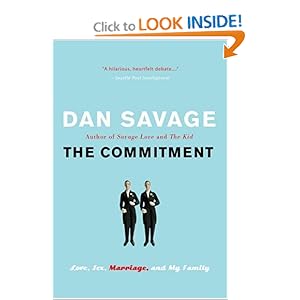I'm a reader, but I am also that rarer person, a re-reader. There are certain books I go back to over and over. I'm aware that this is a trait often seen in loony people (like the guy who shot John Lennon), but in my defense, it's not always the same book. I read Neil Gaiman and Terry Pratchett's Good Omens when I need a pick-me-up. For a moral reboot I got back to a little Kant and to Sartre's Essays on Existentialism. And when I need inspiration for my next big move, I pull out Paul Monette's Last Watch of the Night.
Last Watch should be one of the most depressing books on earth. It's a book of essays because Monette was pretty sure he was going to die while he was writing it--and he knew the signs, having watched friends and lovers alike die of AIDS. Death is omnipresent in the book, and even when he reminisces about the good old days, the grim reaper is standing patiently just offstage. I'd be crazy if I told you the book is never sad--the truth about AIDS is heartbreaking, and Monette has lost patience with the lies people tell about grief and death to make them more palatable. Two of his hard truths are tough to bear. Grief is a madness that even time can't soothe. And some people come to the end of their lives with no satisfaction, only the cold comfort of misplaced priorities.
But what I find inspiring is Monette's strength and energy in the face of the truth, and his satisfaction with his own life and actions as his health fails. AIDS is in no way a universal experience--every disease takes people in its own way, and AIDS has an impressive array of weapons at its disposal, an assassin who doesn't have to specialize. But for me the book is at least partly about the universality of being stalked by death. And while that could be depressing, Monette isn't interested in the "woe is me" aspect of death anymore. He's writing to forge determination in his reader. Death is coming--the death of the people you love, your own death, the grief that testifies to the value of what's gone. Your responsibility is to do what good you can with your life, because it's the only comfort you'll get, and the only comfort you can leave to those who suffer your loss.
I always close the book feeling a powerful exhortation. Carry death on your shoulder a little, do and say the things that help you carry your head a little higher, and let your heart gather up its precious cargo--the things that won't be sold in a rummage sale after you're gone.
I haven't found a better foundation for a big decision, or a better motivation to take a little risk. But, you know, if it depresses you, you can always pick up Good Omens, in which death gets a good seeing-to.
Subscribe to:
Post Comments (Atom)


No comments:
Post a Comment